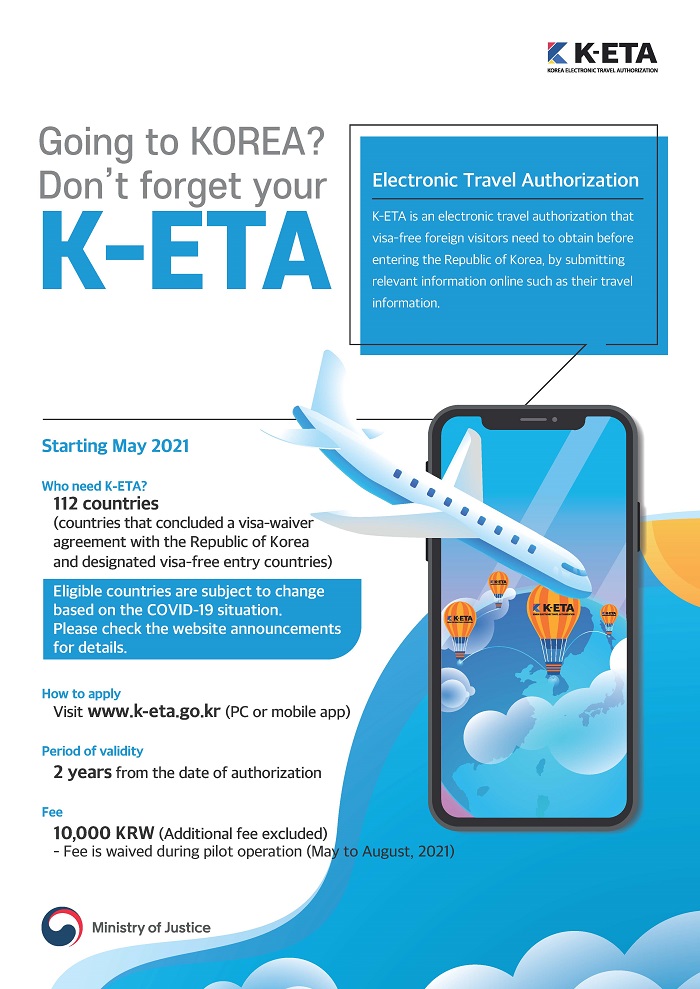Essential Things to Know Before Traveling to Korea

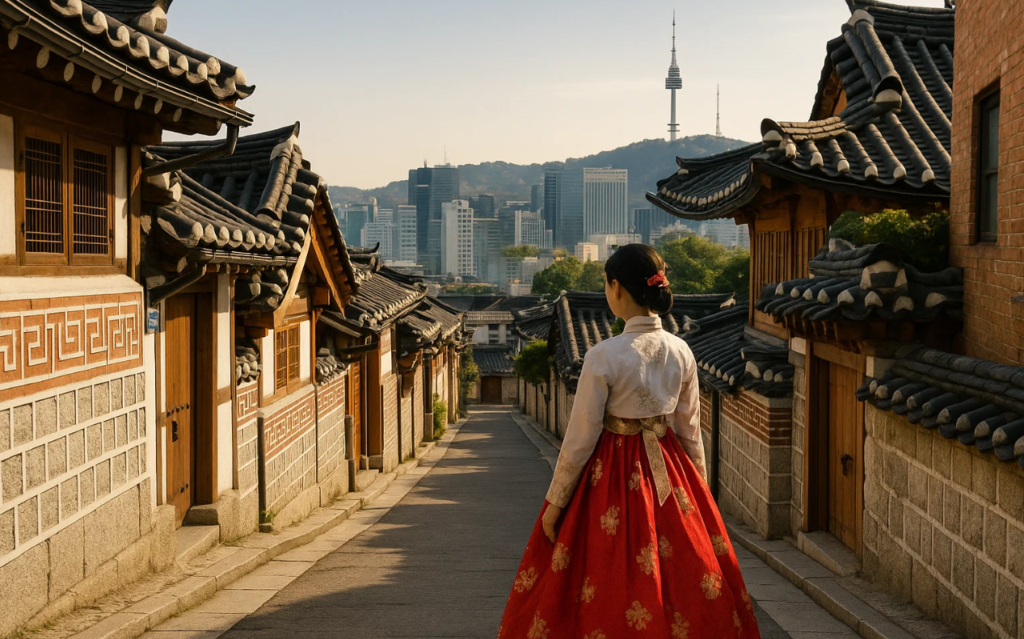
Traveling to South Korea is an exciting experience, offering a rich blend of tradition and modernity.
Whether you’re here for the food, historical landmarks, or vibrant city life, knowing a few basics can help your trip go more smoothly.
This guide will walk you through key information every traveler should know before visiting Korea.

▌Visa Requirements and Entry Rules
Most travelers from countries like the US, EU, Canada, and Australia can enter South Korea visa-free for up to 90 days. However, a K-ETA (Korea Electronic Travel Authorization) is required for visa-free travelers and must be applied for online at least 72 hours before boarding. Make sure your passport is valid for at least six months from your date of entry.
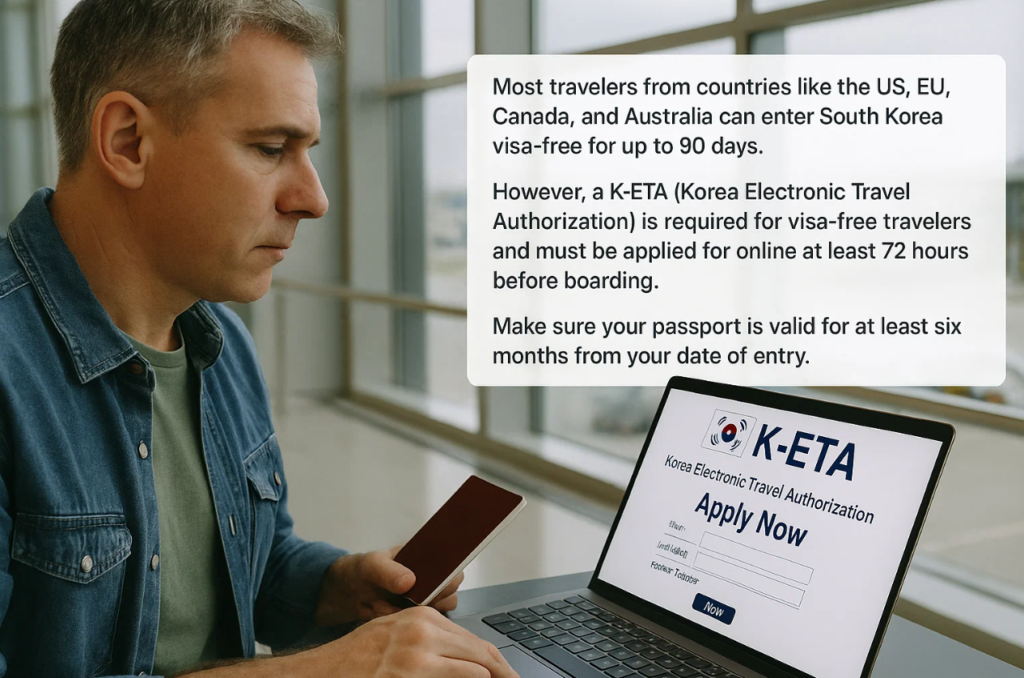
If you’re planning a long-term stay or specific activities like work or study, you’ll need to apply for an appropriate visa in advance through the Korean embassy or consulate in your country.
▌Transportation: Navigating Korean Cities
Korea has an excellent public transportation system. In major cities like Seoul, Busan, and Daegu, the subway system is fast, safe, and English-friendly. You can purchase and top up a rechargeable T-money card, which works on buses, subways, taxis, and even some convenience stores.

Long-distance travel is made easy with high-speed trains (KTX) and express buses. Apps like KakaoMetro, Naver Map, and KakaoTaxi are extremely helpful for navigating routes and calling taxis.
▌Currency, Cash, and Cards
The local currency is the Korean won (KRW). Credit cards are widely accepted, especially in urban areas, but it’s a good idea to carry some cash for small shops, traditional markets, and rural areas. ATMs that accept foreign cards can be found in convenience stores and major banks.
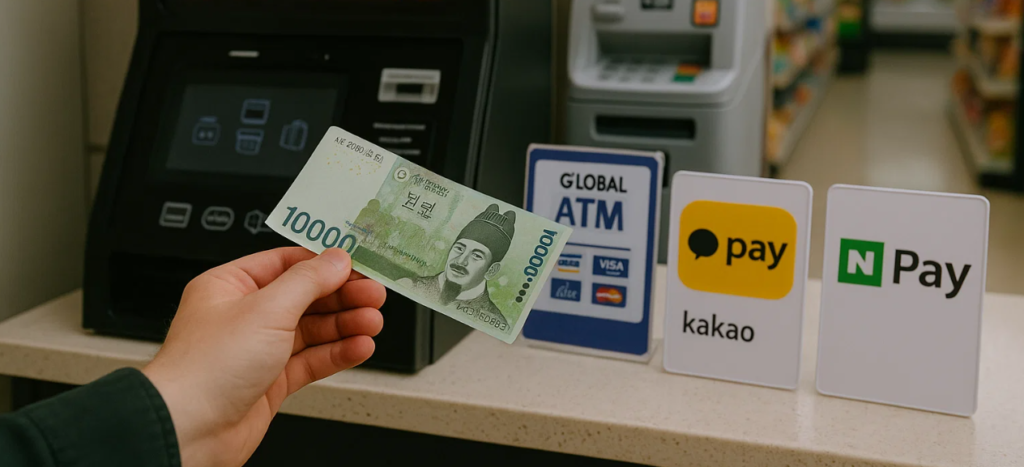
Currency exchange services are available at airports, banks, and exchange booths in popular tourist areas. Mobile payment apps like Kakao Pay or Naver Pay are also becoming more common, but require local registration.
▌Basic Etiquette and Social Norms
Koreans are generally polite and respectful, and social harmony is highly valued. Bowing is a common greeting, and using both hands when giving or receiving items (especially money or gifts) is a sign of respect. Removing your shoes when entering someone’s home is a must.

Public behavior is expected to be modest—avoid loud conversations, and keep phone calls short on public transportation. Tipping is not customary in Korea and is often refused in restaurants and taxis.
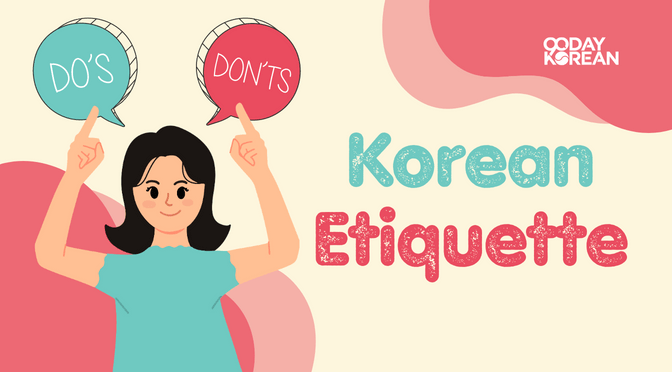
▌Connectivity: Internet and SIM Cards
South Korea has one of the world’s fastest internet networks. Free Wi-Fi is available in many public areas, but it’s recommended to rent a pocket Wi-Fi or buy a local SIM card for convenience and coverage. You can find SIM cards at Incheon Airport or major mobile carrier stores.
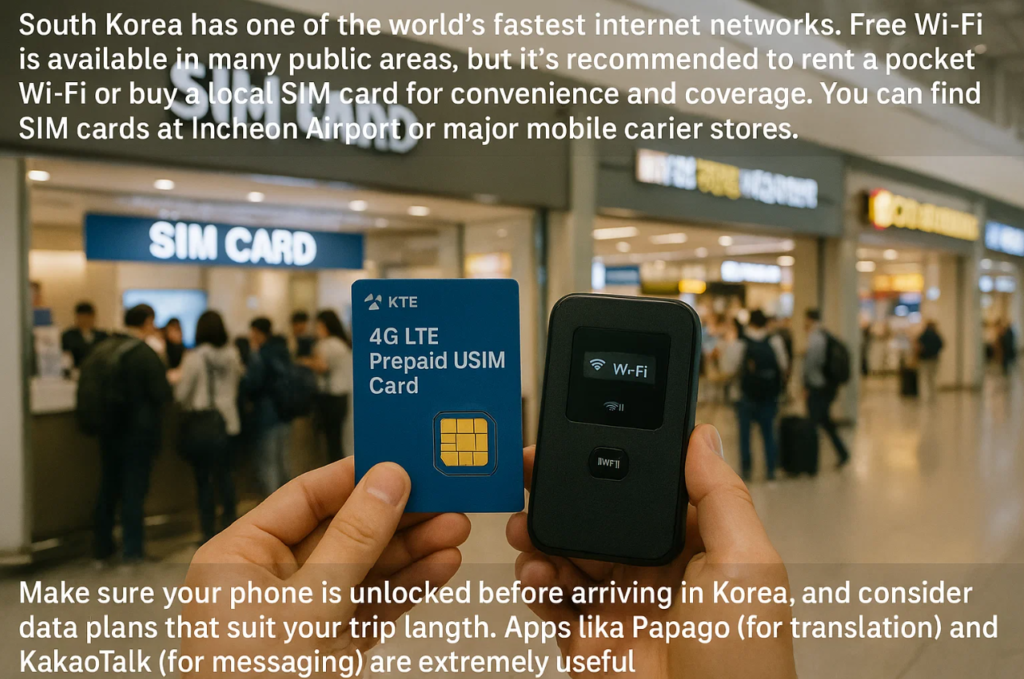
Make sure your phone is unlocked before arriving in Korea, and consider data plans that suit your trip length. Apps like Papago (for translation) and KakaoTalk (for messaging) are extremely useful.
▌Safety and Emergency Info
Korea is one of the safest countries for travelers. Violent crime is rare, and public areas are well-monitored. Still, it’s wise to keep an eye on your belongings, especially in crowded places.

The emergency number for police is 112, and for fire or ambulance is 119. Operators may not always speak fluent English, so using translation apps or showing addresses in Korean can help. Pharmacies are easily accessible, and many are open late in larger cities.
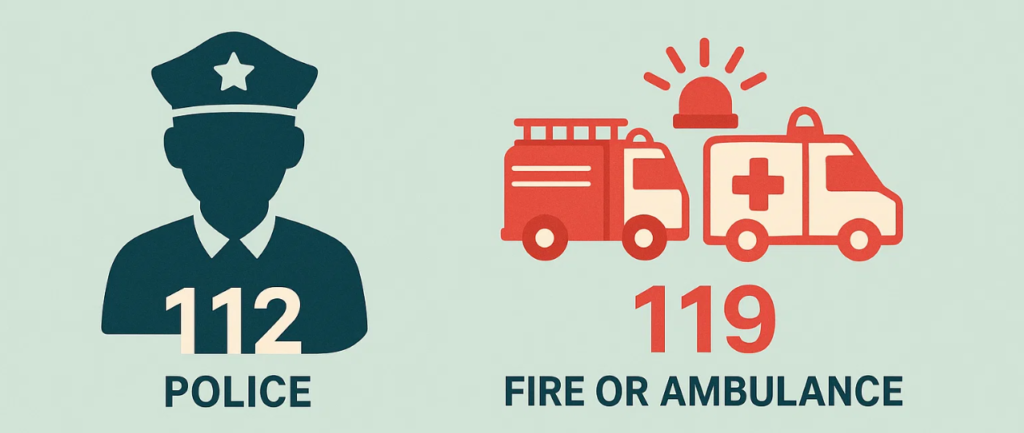

▌Weather and What to Pack
Korea has four distinct seasons. Spring (April–June) and autumn (September–November) are ideal times to visit due to mild weather and beautiful scenery. Summers are hot and humid with a rainy season, while winters can be quite cold with snow in some regions.
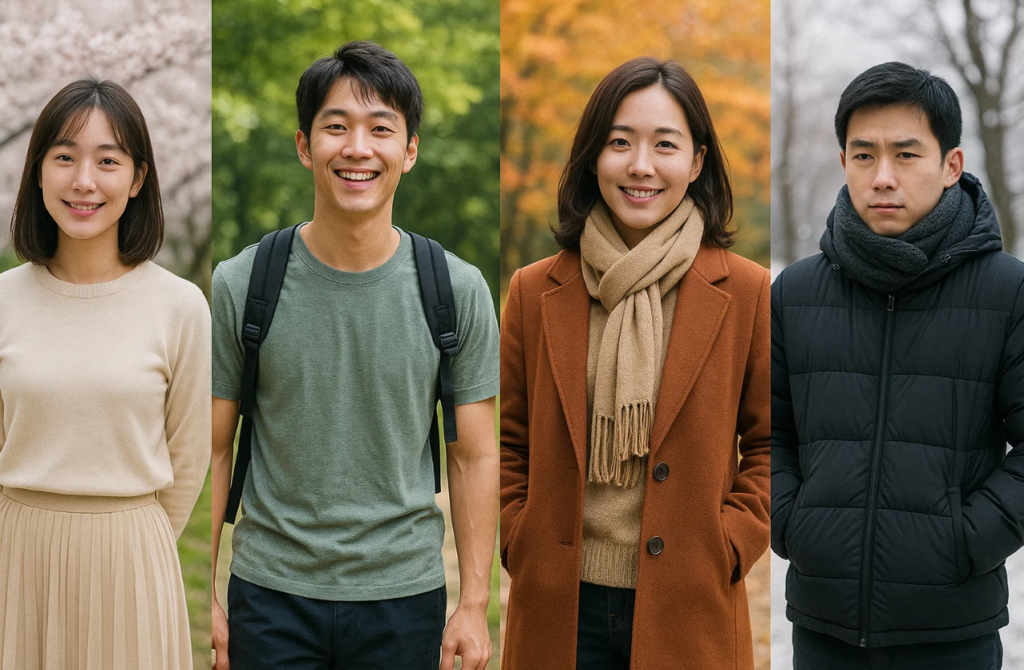
Pack according to the season, and bring comfortable walking shoes since many attractions involve a fair amount of walking. If visiting temples or palaces, modest clothing is appreciated.
▌Final Thoughts: Enjoying Korea with Confidence
South Korea is a welcoming, modern destination where tradition meets technology. By learning a few basic tips and respecting local customs, your trip can be even more memorable and stress-free. Whether you’re exploring bustling cities or quiet temples, knowing these essentials will help you enjoy the best of Korea.
“Discover Korea, one story at a time.”
“하나의 이야기로 한국을 만나보세요.”
If you enjoyed this story, share it with someone who’d love it too.
